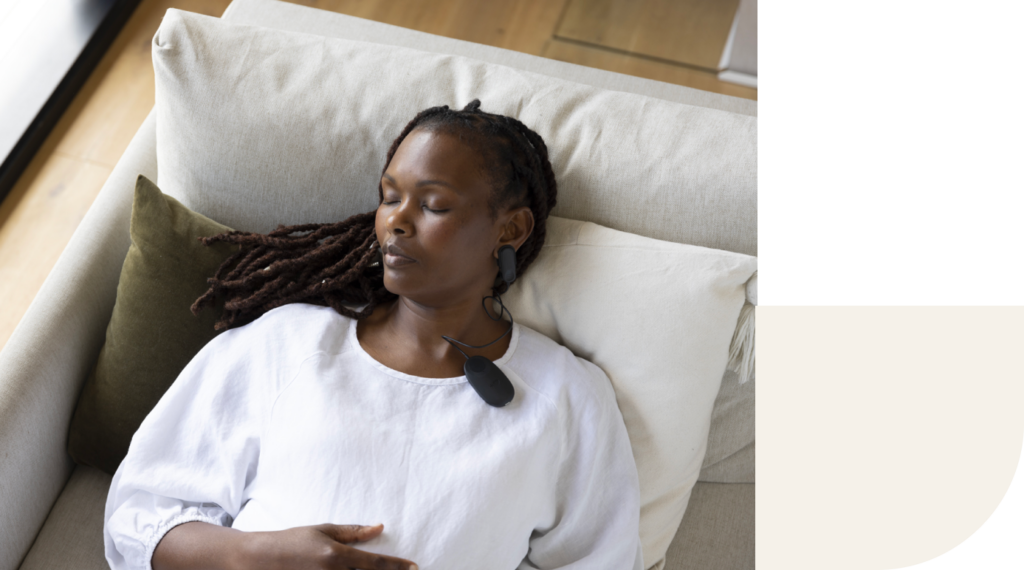Learn to thrive: the key to resilience lies in self-compassion
Resilience, the ability to bounce back from adversity, is a trait we all desire. Discover why self-compassion is the essential element that holds the key to not just surviving but thriving in the face of life's trials.

Can you recall a time in your life when you experienced negative emotions? How did you react, and what were some of the thoughts with which you grappled?
Practicing self-compassion enables us to embrace our emotions while also nurturing resilience and self-confidence.
Let’s begin by gaining a clear understanding of self-compassion. Watch this quick 1-minute video that elucidates the fundamental concept of self-compassion and its relevance in today’s world.
Myths around self-compassion
Numerous myths surround self-compassion. For instance, many people believe it’s a self-indulgent practice, as if extending compassion to ourselves drains energy and resources that could be devoted to others. Such beliefs are particularly prevalent in professions that involve caring for others, like mothers or healthcare workers.
Another misconception is that there’s no time for self-compassion. We juggle numerous responsibilities and feel we lack the time to bestow warmth and kindness upon ourselves.
A third fallacy is that self-compassion fosters complacency, dampening our motivation for growth and personal development.
Let’s first dispel these myths.
Research reveals that self-compassion enhances resilience. Our ability to bounce back is stronger when we’re not overly critical of ourselves. When we practice self-compassion, we can trust that we’re doing our best in the present moment and release unrealistic expectations, freeing up energy.
Furthermore, self-compassion deepens our connections with others, whether they’re colleagues, friends, or family. Being kind to ourselves increases our capacity to understand and accept others.
How to cultivate self-compassion in your life
There are three frameworks for cultivating self-compassion:
Mindfulness: Through mindfulness, we can approach our thoughts with curiosity, noticing how they influence our emotions without judgment or self-criticism. This empowers us to choose our responses and emotions in challenging situations.
Common humanity: Even when it feels like we’re the only ones experiencing certain emotions, many people share similar feelings at any given moment. Whenever you’re frustrated or disappointed in yourself, remember that you’re not alone in your experiences.
Self-kindness: When grappling with difficult emotions and self-critical thoughts, ask yourself, “Would I treat a friend in the same situation this way?” If not, consider extending the same kindness and understanding to yourself.
Developing self-compassion doesn’t occur overnight. Like a muscle, it’s something we can nurture over time through consistent practice.
Practice forgiveness and cease punishing yourself for your mistakes. Nobody is perfect, and acknowledging this is crucial.
Join a mental health program that’s more effective than therapy - Meru Health.
85% of Meru Health participants notice their well-being improving.
Therapist appointment availability within days of signing up.
Gain tools to control stress and anxiety, in just 12 weeks.
Unlimited support from your dedicated therapist.
“I cannot recommend this program enough to anyone who wants to have a better understanding of their thoughts and emotions as we move through the world.”
– Meru Health participant
How does the Meru Health program work?

Registration
After downloading the Meru Health app and filling out a questionnaire, we’ll pair you with a licensed therapist. In your initial video call, you’ll talk about your needs and goals, and set a care plan together. You’ll also be able to see your exact program cost when you register on the Meru Health app and submit your insurance details.

During the program
During the program: After your initial video call with your therapist, you’ll begin the 12-week, app-based program. Your therapist will be with you at every step, available via text to guide you through lessons and activities designed to help you improve your mental wellbeing.

After completion
The Meru program is designed to not only help you through current issues but to equip you for a lifetime of improved emotional health. As part of that, you’ll have ongoing access to “Meru graduate” resources like webinars to help you stay on track.
Before sign up
During the program
After completion
Registration
After downloading the Meru Health app and filling out a questionnaire, we’ll pair you with a licensed therapist. In your initial video call, you’ll talk about your needs and goals, and set a care plan together. You'll also be able to see your exact program cost when you register on the Meru Health app and submit your insurance details.

During the program
After your video call with your therapist, you can decide whether or not begin the 12-week, app-based program. If you do, your therapist will be with you at every step, available via text to guide you through lessons and activities designed to help you improve your mental wellbeing.

After completion
The Meru program is designed to not only help you through current issues but to equip you for a lifetime of improved emotional health. As part of that, you'll have ongoing access to "Meru graduate" resources like webinars to help you stay on track.
Frequently Asked Questions
What is Meru Health?
Meru Health’s clinically proven 12 week-program includes a licensed therapist, psychiatrist, anonymous peer support, a biofeedback device, and evidence-based digital content for sleep, nutrition, and more. All of this can be accessed from a smartphone.
Over the course of 12 weeks, you will learn and practice skills for long-term mental wellbeing, all with the daily support of a dedicated therapist.
How long does the Meru Health program last?
Meru Health program is designed to last for three months (12-weeks).
After completing the program you will get a lifetime access to the program content and practices, and also become a part of our “Meru Grads” post-program community with access to many resources like webinars to help you stay on track.
What will I learn during the program?
Over the course of 12 weeks, you will learn how to reduce worry, control the negative thoughts that impact your emotions, bounce back from adversity, improve your sleep quality and stress response, and create a life-long plan for better mental health.
How do I interact with my therapist?
The program starts from a 30-45 min video intake call with a master or doctoral-level licensed therapist to identify your treatment goals and personalize your experience.
Your dedicated therapist will support you throughout the whole program, providing additional resources, and guiding you when you feel lost, unmotivated, or just need to talk.
You will have the ability to communicate with your therapist through a secure in-app chat, discreetly, and without any pressure. You can send a message whenever and as frequently as you want.
If required, you can schedule additional sessions (up to 3 in total) with your therapist during the program.
Are Meru Health therapists licensed?
Yes. Our team consists of master or doctoral-level licensed therapists who have three years or more experience and have verified background checks.
What's the cost of the program?
Meru Health is included in major health plans like Moda Health, Cigna, Aetna, and more.
Members are subject to the co-pay/deductible/coinsurance. The cost varies based on your plan type. Members pay the equivalent of a behavioral health outpatient fee for co-pay plans. For those who do have copays or cost sharing, we accept payment from FSA/HSA accounts.
Explore more about mental well-being

A more positive attitude can help you reduce stress and anger and improve your productivity and quality of life. Learn a simple practice to develop a habit of maintaining a positive attitude no matter what. Read the article>>

Anxiety mounts for a myriad of reasons. Today, you’ll learn how to keep it from spiraling out of control by focusing on the present moment.
Read the article >>

When it comes to reducing stress, mindfulness is certainly important. But there’s something that’s even faster and more effective, and it’s as easy as breathing. Actually, it is breathing. Read the article >>
